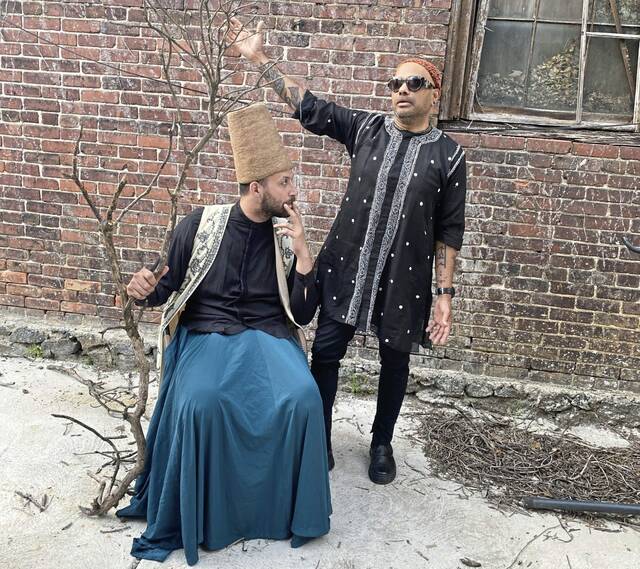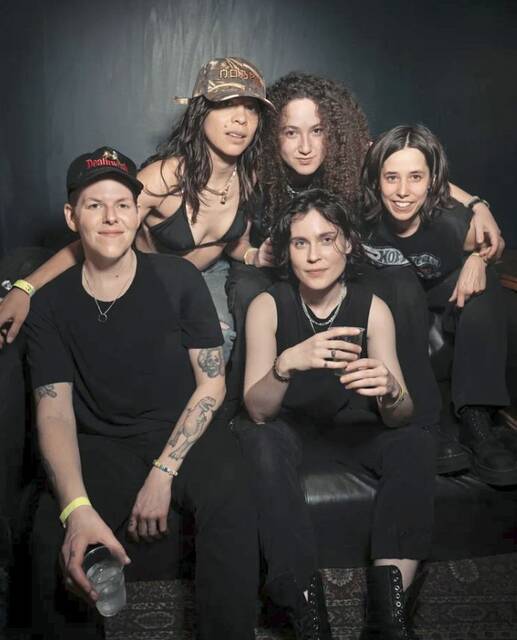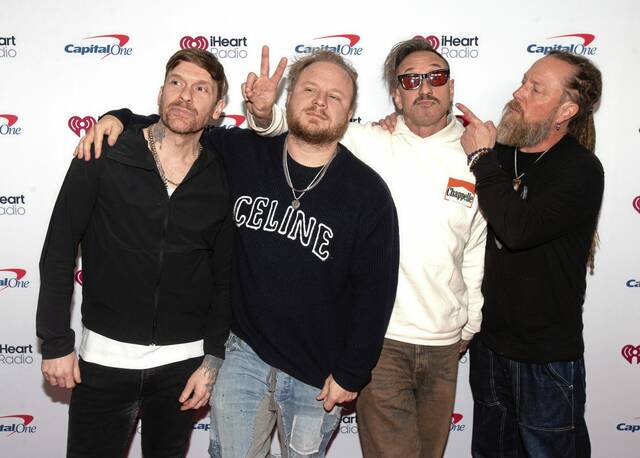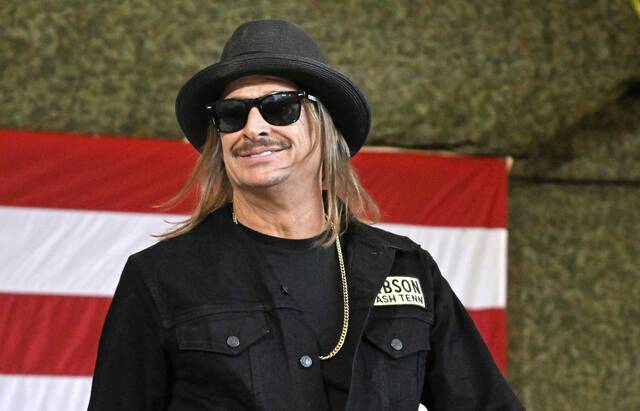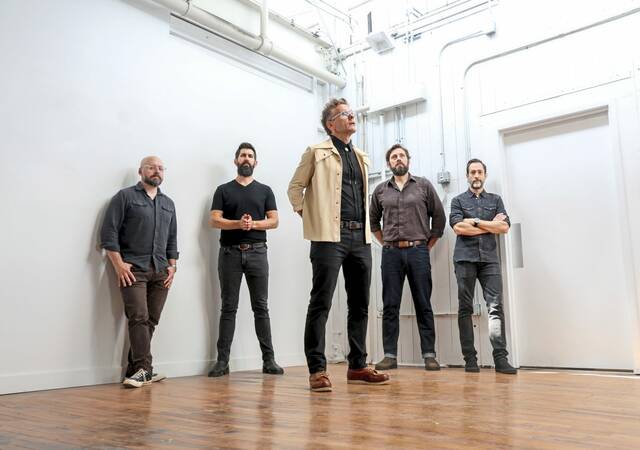While Ravish Momin was studying engineering at Carnegie Mellon University in the mid 1990s, he was getting another education in music.
“Long story short, I ended up begrudgingly doing an engineering degree, which I did not want to do,” Momin said with a laugh. “Parental pressure, all that stuff, and then I got into the Rusted Root scene when I was there. I was just like wow, this is cool. What’s all this about?”
The fertile music community inspired him to further explore music, which he had only studied privately as a kid. His group of friends in Pittsburgh included Don Caballero guitarist Ian Williams (now of Battles) and Jesse Trbovich (now of Kurt Vile and the Violators), and he took percussion lessons from Rusted Root drummer Jim DiSpirito.
Although he now splits his time between New York and Philadelphia, where his partner teaches at Temple, Momin still considers Pittsburgh to be his second home, having spent about eight to 10 years including his CMU days.
Momin, an Indian-born drummer/electronic music producer, will be back in town on Nov. 2 with his latest project, Faraway Ghost x Sunken Cages, for a show at Sprezzatura in Millvale. In a full-circle moment, the show includes Pittsburgh’s Social Justice Disco, which features Rusted Root vocalist Liz Berlin in collaboration with Pittsburgh jazz diva Phat Man Dee.
“I’ve known Liz since the mid ’90s, but we’ve never obviously played together,” he said. “I’ve always known of her only as a member of Rusted Root and then fast forward to the present, become friends and then put this double bill together. I was like, holy (expletive), this is happening!”
The new project pairs Momin, who performs as Sunken Cages, with Iranian singer Kamyar Arsani, who sings in the Farsi language, in what Momin dubs “digital folk music.” Their new album, “Ashk Haye Moghavemat,” will be released Nov. 29 by French record label Akuphone.
In a call Friday from Philadelphia, Momin discussed the new album, looking beyond “world music” and the origins of his performing name:
What should people know about the upcoming album?
This is like a super special project of mine. It’s a duo with this Iranian singer, Kamyar Arsani, who goes by the stage name Faraway Ghost. And it really is this idea that when you say folk music to someone, you always think of like Bob Dylan or Joan Baez or someone with a folk guitar, singing, singer-songwriter. But we live in 2024 and the idea of folk music should be evolved and adaptive to our current technologies. Everyone’s using smartphones, everyone’s online. But how come we don’t include these digital tools when we talk about folk music?
So that’s this push behind this project. It’s working off of folk tunes, Persian poetry, but then it’s in this digital environment with electronic beats, which are influenced by Indian beats and Persian beats, but it’s all in this kind of electro-acoustic environment. But it’s heavily beat driven, with these Sufi and Persian elements on top. And I think that’s something unique. And hopefully, if people come, they’ll have a new experience and challenge the notions of what it means to be a folk musician in 2024, and also just vibe out to some interesting grooves and see how we put that together.
It doesn’t seem like it’s very easy to categorize your music.
I just call it digital folk music. We could talk for an hour about what world music means, but I kind of stay away from that. And it’s like world music, like, come on, you can’t lump the whole entire globe outside of rock, jazz, hip hop, blues, folk — everything else is world? (laughs) So for me, it’s just simpler to call it digital folk music, or sometimes we even throw in digital Sufi music. But folk music, I always say, has elements that are familiar and also unfamiliar. So it’s got both happening at the same time. When you say experimental, I think for most people — and correct me if I’m wrong — it’s like a scary word (laughs) and it evokes all these images of people making just a lot of noise. (laughs) So we stay away from that word.
What does the album title mean? I tried to plug it into Google Translate, and I didn’t get a lot of help there.
Oh, I know. Unfortunately, it’s a Farsi word, which is Persian. And it just simply means “Tears of Resilience.” And it’s just because Kamyar’s background also is he used to be heavily involved in the Women Life Freedom movement in Tehran, stood up for women’s rights. And just people resisting, people fighting back. We’re living in really difficult times right now where a lot of oppressed people are just fighting back right now all over. So it’s this idea of like, yeah, you have these tears, but it’s about resilience and about being resilient in these tough times.
Related
• Pink Martini's China Forbes on the band's 30 years and 30 languages• Alana Springsteen talks Tiny Desk Concert, 'Twenty Something' album, new era ahead of Pittsburgh show
• 2024 Pittsburgh area concert calendar
How different is it working in the studio for this vs. the live experience?
Working with a singer for me is a new experience and working with a singer-songwriter, thinking in songs, a lot of my work has been jazz-based, and I use the phrase jazz adjacent or music that’s informed by jazz or improv or non-vocal, basically. So working with a singer is like, OK, you got to really think about form and think about where are you going to place things because there’s lyrics that go along. It’s not just in the moment, lyrics are set. So it was really challenging for me to come up with arrangements. I do all the arranging, musical arrangements, I write the synth parts and the drum parts. So putting that together with Kamyar’s vocals was an amazing challenge, but a lot of fun.
How did you come up with the name Sunken Cages?
I don’t know how much time we have for that, but it really is a climate change reference. So again, like CMU, this kind of all ties it together. A lot of my focus was on environmental engineering. And I actually did do that for a living for a while, just doing environmental remediation and stuff like that. We’re dealing with climate change. We’re dealing with things. So Sunken Cages is a little dark, this idea of a cage that’s sitting somewhere. We don’t really know what’s in it, but it’s sinking. (laughs) So it’s a little abstract, but it’s this idea of things are sinking, climate change is happening, whether you want to accept it or not. That’s what I studied at CMU. There’s a ton of science behind this stuff, like people at CMU. Whatever you think about CMU, they know what they’re doing. So I studied that for a while, we did a lot of climate modeling. That was the one way for me to connect my engineering past with my music future, talk about climate change, talk about environmental awareness and ecological changes and just being more aware of what’s happening. So that was a simple way of just peppering that into my new musical project. But Sunken Cages definitely refers to a solo project also. It’s not a band. It’s just my moniker for when I’m doing my live looping and my live beats.



